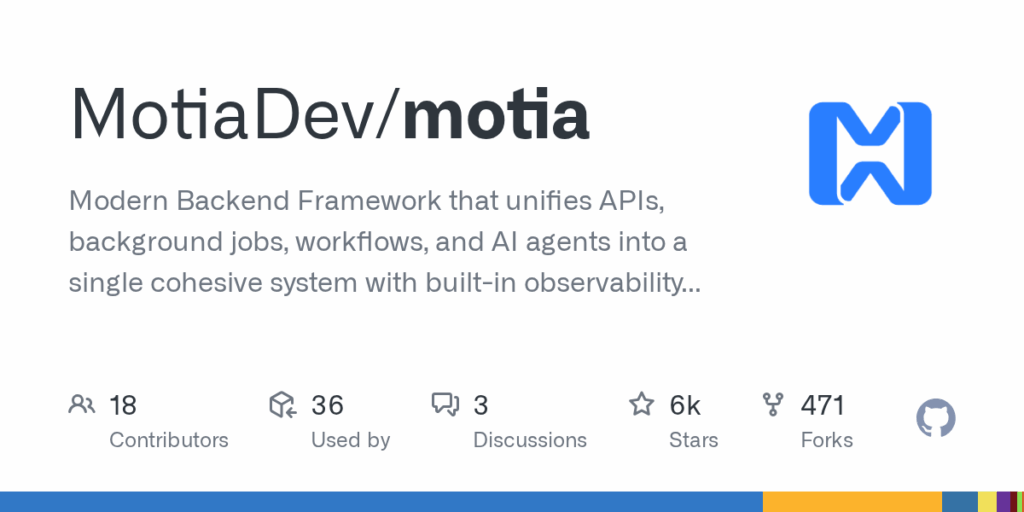motia
Basic Information
Motia is a modern unified backend framework designed for developers who want to combine APIs, background jobs, workflows, and AI agents into a single system. It centers on a core primitive called the Step, which encapsulates business logic and can be triggered by HTTP requests, internal events, or cron schedules. The repo provides CLI quickstarts to bootstrap projects, a local Workbench for building, testing and observing workflows in real time, and examples that demonstrate common uses such as finance agents, RAG, GitHub automation, Gmail management, Trello automation, and image generation. Motia aims to eliminate runtime fragmentation by letting teams write Steps in multiple languages, share unified state, trace executions end to end, and deploy a cohesive backend instead of maintaining separate services for APIs, queues, and workflows.








